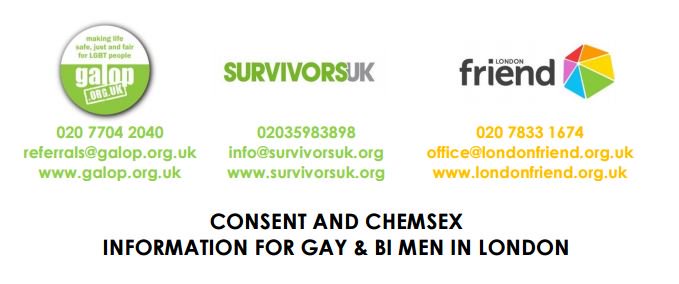APPS & SAFETY
Social networking apps and websites have become a fixture of modern dating for many people. A range of apps and sites are available for people looking to meet for dates, friendships and casual sexual encounters. Smartphone apps such as Grindr, Findhrr, Tinder and many others offer meet-up opportunities for people seeking same-sex or mixed-sex dates and encounters, using GPS location software to indicate other users are nearby. Although the technology is new, using services to find potential partners is not, and in many ways technology offers an extension of traditional magazine contact ads or ‘introduction agencies’.
Apps and sites have become particularly popular with some LGBT people, offering an easy way of knowing whether potential partners share the same sexual orientation, or a space where people can choose to disclose their gender identity prior to meeting. For many people online services and apps allow them to seek a certain type of partner, or one with similar interests, which can feel easier than hoping to meet their ‘ideal match’ in a bar or club. Some people enjoy the opportunity to find a quick, nearby, casual sexual hook-up, whilst other profiles indicate users prefer to meet for a drink or dinner date before getting romantic.
Apps can be a healthy and happy addition to dating or casual sex, and have helped many people improve their confidence around dating and ‘chatting up’ people they fancy. Some users report easier access to potential partners who prefer specific physical attributes, sexual practices, or social interests for example. However, just like dating in the ‘real’ world, ‘virtual’ dating online and on apps can carry some personal safety risks, or be a target for hate crime.
HARASSMENT
Some users have reported experiencing harassment from other app and website users. This can include bullying, intimidation, belittling, or threats to expose personal information or intimate photos and videos you may have shared. Most service providers have a function to block and report this, although persistent harassment may occur if the other person creates a new user account and profile.
PERSONAL SAFETY
Meeting somebody new for the first time always carries a degree of risk, although the vast majority of people who go on dates or meet casual sexual partners do so safely. Even though you may have been chatting to the other person through a messaging service for some time, you only know what they have told you about themselves, and they may not be telling the truth. Someone’s online persona may be very different to how they are in real life, particularly if you have felt strongly attracted to them.
TARGETED HATE CRIME
There have been a number of news stories where apps and websites have been used to target LGBT people in hate crime attacks. These include people posing as LGBT people to find another LGBT person to assault or rob. In some cases one person has met the LGBT person they are targeting, and others have later joined them in gang attacks. In countries where LGBT people experience fewer rights or where same-sex relationships are illegal, apps have been used to attack LGBT people or to extort money or goods from them with threats to out them.
TIPS FOR SAFER APP AND DATING SITE USE
There are a number of actions and behaviours you can consider to make app use and online dating safer. Some of these are general personal safety considerations, and some specific to developing technology.
ONLINE TIPS
- Protect your personal information online. Don’t give out your address or any other personal details such as financial details or where you work.
- Don’t give out your phone number – apps and websites allow you to send messages, which you can use to communicate in the early stages of getting to know someone.
- Think about any nude or intimate photos or videos you share – do they show your face or can you be identified by other features such as tattoos? Would you be happy if these were shared without your permission?
- Protect your password – the service provider will never ask you to disclose this. Be cautious too if accessing websites from public computers and ensure you have properly logged out.
- Block any users harassing you, and consider reporting them to the service provider. If you have received threats from someone who you know, or who knows where you live or work, consider also reporting this to the police. You can consider keeping screenshots of any abuse or threats too as evidence.
OFFLINE TIPS
- Arrange to meet the person in public – perhaps at a station, coffee shop, restaurant or bar – and be cautious of taking them to your own home or going to theirs, particularly on a first date. You may want to consider not having sex on a first date with new partners.
- Tell a friend if you are going on a date, along with where you are going, and if you leave with the person for their house or yours. You may want to ask a friend to call or text you during the date to check everything is going well.
- If you invite people to your house be aware of any valuables that could easily be stolen such as wallets, keys, tablets, laptops or mobile phones. It’s a good idea to store these out of sight.
- Remember you can change your mind if you want to end the date or encounter, even if you have already started having sex. Your partner should accept your wishes and not coerce you to continue.
- Be cautious if you are planning to use drugs or alcohol. Some people use apps to arrange ‘chemsex’ hook-ups and sex parties. Be aware of what – and how much – you are consuming, particularly if this is a new partner or group. More information on safe drug and alcohol use can be found on our Antidote site and GMFA.
- Be mindful of your drink. Keep an eye on it – could it be spiked?
- If you do plan to have sex do you have everything you need with you to play safely? Carry condoms and lube with you, or negotiate the kind of sex you’re happy with before you play. Consider talking about each other's HIV status or whether you are on PrEP or not.
- Think about how you will get home – do you know the public transport route, including last busses and trains? Do you have enough money to get a cab home? Is your phone charged?
TAKE A BREAK
Some people can find using apps and online sites compulsive. They can be great for your confidence, and help you meet new partners and friends, but remember to keep them in perspective. It can be more satisfying going out with friends, or to do an activity you enjoy like going to the gym or the cinema than checking in every few minutes ‘just in case’ you miss that ‘perfect’ person.
REPORTING A HATE CRIME AND GETTING SUPPORT
Apps and dating websites can add a lot of fun to our social and sex lives, but if something does go wrong when you chat to or meet somebody think about whether this could be a hate crime, and consider reporting it. This can lead to the perpetrator being prosecuted and reduce the risk of them doing it again. You can also seek support to help you talk it through and deal with your feelings afterwards.
To report a hate crime contact our partners Galop on 020 7704 2040 or visit www.galop.org.uk
CHEMSEX & CONSENT
We've teamed up with Galop and Survivors UK to produce this new information about chemsex and consent. Read it here.





